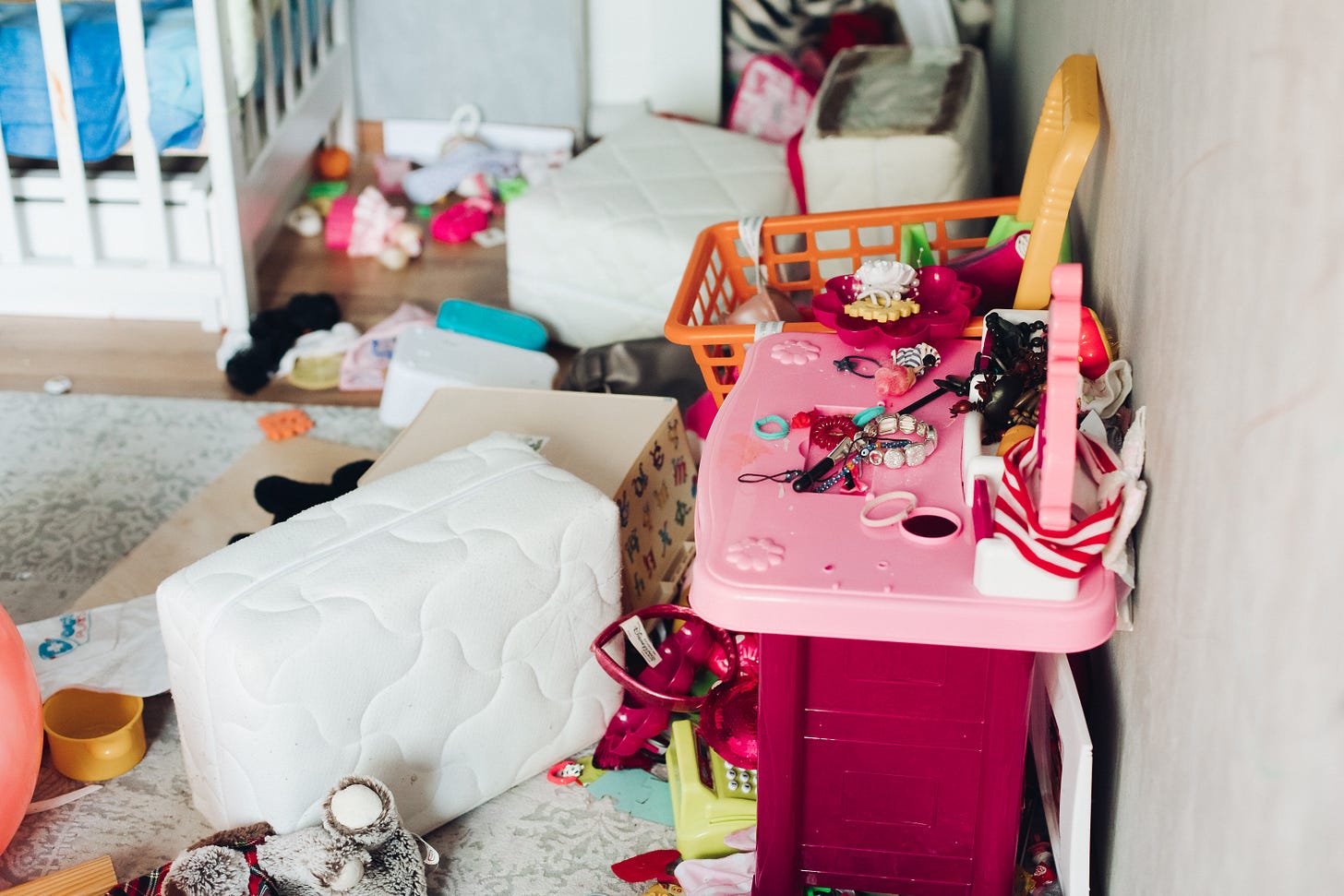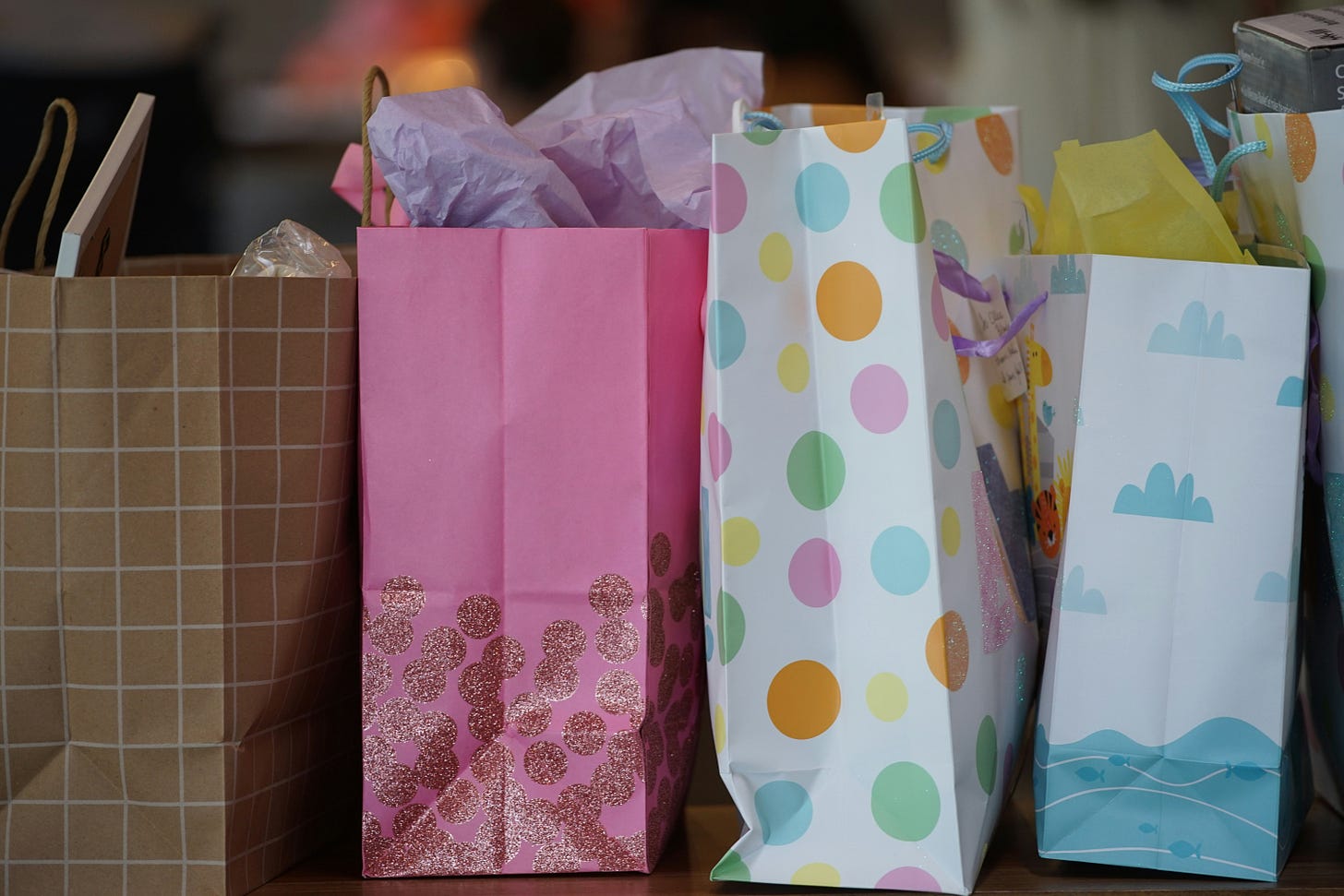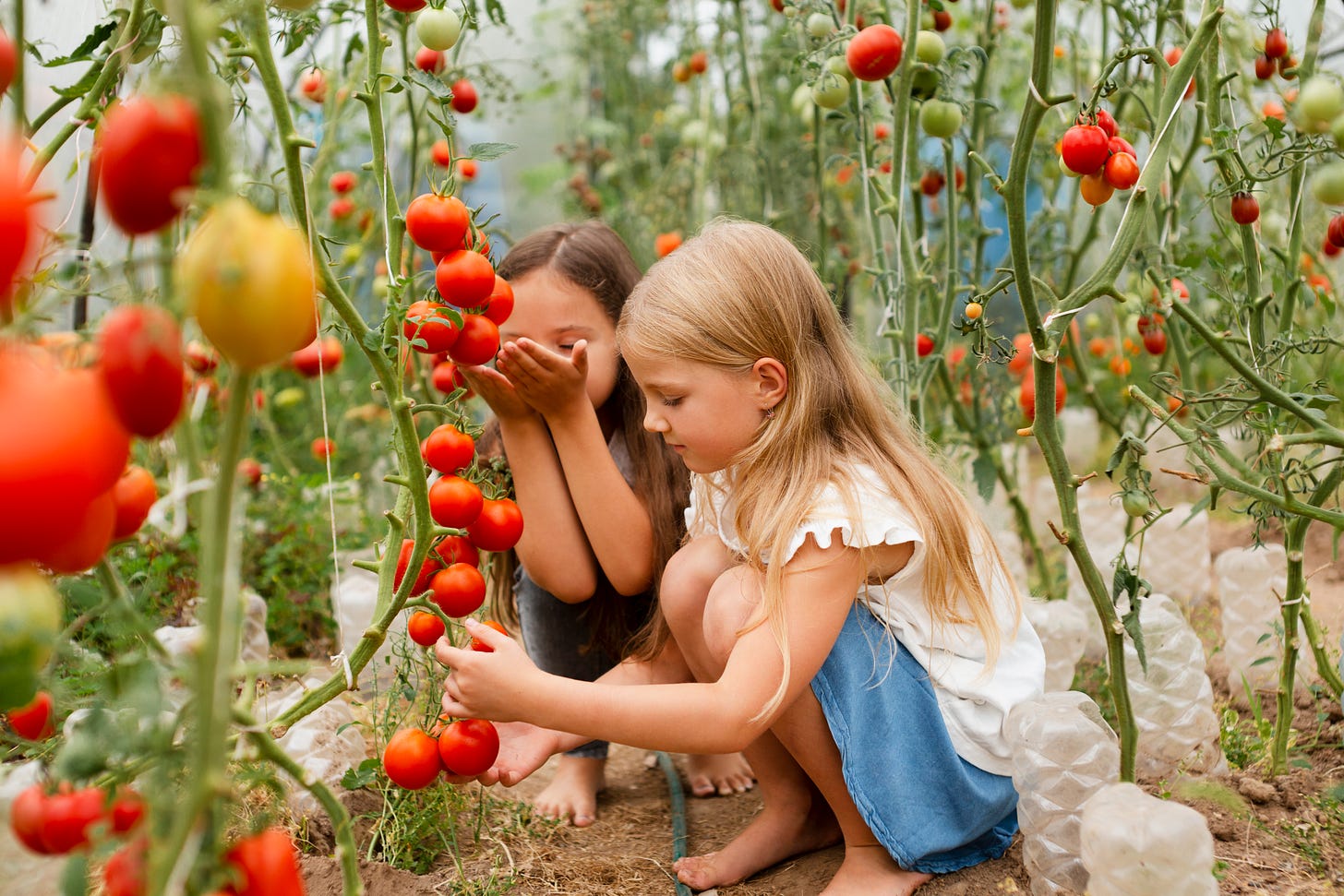I said in my latest post that I grew up far away from western culture, and that I had very few enrichment opportunities. It wasn’t just that. I didn’t grow up with a quantity of toys to make for rotations. There certainly was no summer camp (Summer What? There was a garden to be weeded and watered, siblings to be cared for, trees to be climbed and cherries to be picked). I didn’t grow up with “Go outside,” because I was already outside. I did grow up with a kind of “We have food at home “, but what that really meant was: “Don’t eat all of the neighbors’ pancakes.”, not “We can’t eat in a restaurant today”.
Fast forward to life now: I live in an affluent culture where children are often overloaded with stuff: things they didn’t ask for, don’t need, and quickly forget. And while we’re not swimming in disposable income, I still have to swim upstream against a culture that equates love with more.
I know this sounds stingy, but: I don’t want my children to have everything. I want them to have perspective and gratitude. Joy in small things. I want them to know how to live well, not just live with a lot. And I am not entirely sure how to go about that, because the way of life is so incredibly different now.
We live in a society where giving your kids everything is seen as the measure of good parenting. But I don’t see it like that.
I don’t want them to have every toy, every gadget, or every opportunity handed to them. Because I can see what abundance without limits does: it dulls appreciation. When there’s always more, nothing feels special. When a new toy appears at the slightest whine (or just because it’s affordable, (hellooo, husband! (I have to put that in double, triple brackets; pretend I didn’t write it))). Where was I? Ah. When a new toy appears at the slightest whine, and extracurriculars are stacked like a résumé by age ten, the whole world starts to feel like a menu of options instead of a place to participate in.
Kids forget most of the stuff. The toy they were begging for is probably somewhere under the couch. The gadget that felt essential in the shop is now just another thing to step over. Even birthday presents that were lovingly wrapped and excitedly handed over all blur together over time (Talking about presents conjures up the scene at the beginning of Harry Potter part 1 where Dudley complains about his birthdays gifts. Admittedly, most people don’t go that far). Ask the kids what they unwrapped two years ago and they’ll likely just shrug. But ask them what was the thing that made them laugh and they’ll remember that the dog licked the icing of the cake.
I’m not saying kids are ungrateful. I’m just saying that too much stuff makes everything feel less special. Their memories tend to settle around the moments and around how they made them feel. They don’t hold onto the object itself, but how they felt in its presence.
I still remember the year I got a Harry Potter book for my birthday (not a set, we could afford only the one). Oh, how I treasured it! I read it slowly, carefully, many times over. I placed it back on the shelf like a jewel, a Fabergé book. It was mine, to read and revel in it whenever I wanted. I didn’t have to return it to the library. My joy was disproportionate to the object, but not to the experience. It felt so special because it wasn’t a given.
I don’t want to deprive my children of things, I just want them to know the feeling of reverence, one where gratitude can grow.
I also don’t want to shield them from discomfort.
I want them safe, supported, and loved beyond measure, no doubt about that. But I’ve noticed what happens when kids are protected from every sting of frustration, boredom, or failure. They begin to internalize that struggling means something’s wrong with the task, or worse, with themselves.
Life is full of struggle and frustration, and I want my children to meet it with some muscle, and by that, I mean emotional resilience. I want them to learn how to get through a hard day, how to try again, how to sit with the feeling of not being good at something yet and keep going anyway. Or not being good at something, ever.
I will oh, so gladly let them fail at times. Simply out of respect for what failure can offer. What better way to help them learn the difference between persistence and forcing something that doesn’t fit. Consider the kid who’s been playing competitive soccer since age five but loses interest by the time they’re twelve. Quitting might seem like failure, wasted time and effort, until they find a passion for dance, robotics, or writing.
We live so instantly nowadays. Click, stream, swipe, delivered. I want my kids to feel anticipation. I want them to not get what they want or right away as a practice. I even want them to feel disappointed sometimes, if what they anticipated turns out not worth it.
They will learn to feel small thrills with me when the cookies come out of the oven, to see how the shapes they made turned out. To wait for the rose buds to bloom, for tomatoes to turn red, to see how a book ends, to count down to something worth counting down to.
I didn’t grow up with everything, and I think that’s precisely why I can see how little everything actually gives. Meaning won’t come from more, but from depth.
I want to raise children who know the difference. Who can look past the noise of consumer childhoods and hear what their hearts yearn for. I’m choosing to give them less so they can feel rich in connection, effort, and wonder.
I know I don’t have all the answers. But I do know this: the culture will continue to scream “more.” I’m trying, very imperfectly, to offer my kids something truer.
If you’ve been thinking about the pull between what we had, what our kids have, and what we truly want to pass on, I’d love to hear what you’ve been learning.
Free PDF
I’ve put together a list of picture books I’ve enjoyed with my kids that gently touch on themes like having too much stuff, what we really need and want, and how happiness doesn’t come from more things.
This is just a handful of stories we’ve read and loved, and that felt like a natural extension of this post. There are no Amazon links. If you're able to buy new books, I encourage you to support your local independent bookshops.
It’s a free PDF, and you can download it right under this sentence.







Thank you Aleksandra for posting this article. It resonated deeply, especially the idea that abundance without limits can dull appreciation. I love how you connect simplicity with emotional resilience and reverence.
One question I keep turning over: how do we navigate moments when the kids feel left out or compare themselves to peers who do seem to have everything? How do we help them hold onto that sense of "enough" in a world that constantly whispers otherwise?
This was so beautifully said — and so needed. I didn’t grow up with “rotations” or “enrichment” either (we had carrots to water and socks to re-darn), and I’ve been feeling that same tug-of-war now as a mom in a very different world. It’s such a tricky balance — wanting to give your kids joy and opportunity without numbing their sense of wonder.
I’m also writing on Substack about the chaos of parenting, and I’m really glad I found your space — it’s a breath of fresh air.